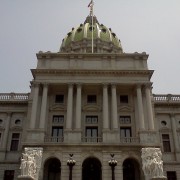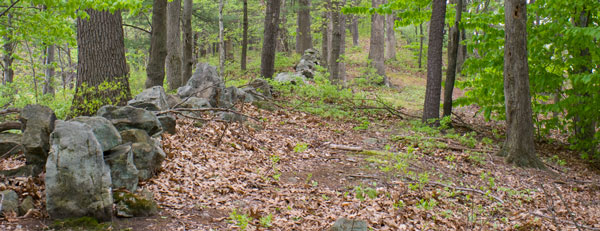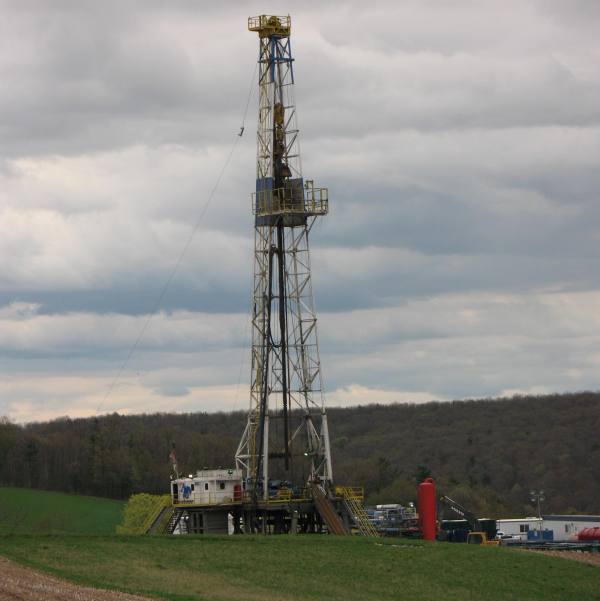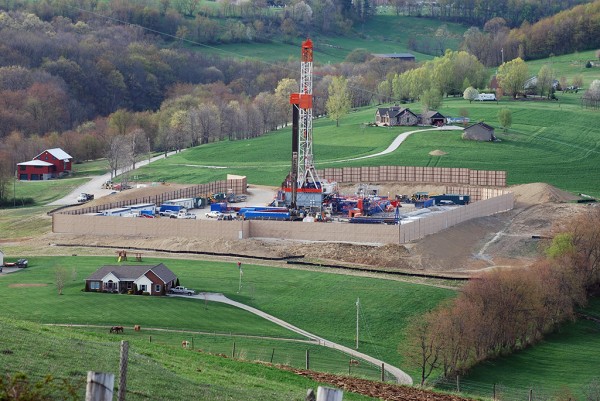Posts
Lt. Governor Jim Cawley on Chairing the Marcellus Shale Advisory Committee
/in Ask the Governor, Media, News, Video /by PAMattersRadio PA Roundtable – November 27-30, 2014
/in Audio, Media, News, Radio PA Roundtable /by PAMattersOn this week’s Radio PA Roundtable, Lieutenant Governor Jim Cawley is our special guest, talking about the election, his duties, his future and the potential for a lame duck session in January.
Radio PA Roundtable is a 30-minute program featuring in-depth reporting, commentary and analysis on the top news stories of the week.
Click the audio player below to hear the full broadcast:
Ask the Governor – September 15, 2014
/in Ask the Governor, Audio, Media, News /by PAMattersAsk the Governor is a monthly presentation of Radio PA and PAMatters.com featuring Governor Tom Corbett. This is the program for September, taped on 9/15/14. Topics include the governor’s reaction to the assassination-style shootings of a State Police Corporal & Trooper over the weekend, the federal approval of his Healthy-PA plan, his desire to call a special legislative session on public pension reform in January if he’s re-elected, Common Core, his “Penn State problem” and much more, including some campaign-related questions as this is the governor’s final appearance on Ask the Governor before the November 4th vote.
We are working on securing First Lady Susan Corbett for our October show, and Governor Corbett returns, post-election in November. Check back regularly with PAMatters.com for updated program information. Submit your questions or comments for the governor today by clicking the Ask the Governor link at the top of this page.
Click the player below to listen to the entire program.
Governor Tom Corbett on Unfinished Business in Harrisburg
/in Ask the Governor, Media, News, Video /by PAMattersGovernor Tom Corbett Answers More Listener Email
/in Ask the Governor, Media, News, Video /by PAMattersAdvocates: Keep Drillers Out of Loyalsock State Forest
/in News /by PAMattersEnvironmental advocates and House Democrats are urging the Corbett administration to keep natural gas drillers out of the Loyalsock State Forest in northern Pennsylvania. Anadarko Petroleum Corporation owns the subsurface rights for some of the land, but state Rep. Greg Vitali (D-Delaware) says the state is in a strong bargaining position because it will be regulating the energy company for years to come.
“They need the DEP and DCNR’s permission for permits and so forth, for many things, both immediately and in the decades to come. So the governor does have leverage. So we are asking that he use that leverage to get a good result,” Vitali explained at a capitol news conference on Tuesday.
But it’s a complex situation, according to Department of Conservation and Natural Resources (DCNR) press secretary Chris Novak. “In the circumstances where the commonwealth does not own the mineral rights, we are required by law, by some legal decisions, to provide reasonable access to the owner, or to the person who leases those rights,” she says.
The DCNR is working on an agreement that can both grant access and protect the forest. The agency is planning a free webinar, Thursday, to review the issue and answer the public’s questions.
House Republicans’ “Marcellus Works” Bills on the Move
/in News /by PAMattersThe “Marcellus Works” package of bills is designed to spur job growth through the increased use of Pennsylvania’s home-grown natural gas, and the House Finance Committee has just advanced a series of tax credits for natural gas vehicle fleets, heavy-duty trucks and fueling stations.
“With the high unemployment, we know that the Marcellus Shale industry – and now with the discovery of oil in this state – is a big plus for this Commonwealth,” state Rep. Stan Saylor (R-York) told the committee. “It is time for us to start using our own resources to benefit Pennsylvania citizens.”
Saylor is the prime sponsor of HB 301, which would provide tax credits for companies that utilize natural gas in their vehicle fleets.
Several Democrats on the Finance Committee voted in favor of the bills, but minority Chair Phyllis Mundy (D-Luzerne) argued that corporate tax breaks do not pave the road to economic prosperity. “We have gone way too far with this notion,” she says. “This is trickle-down economics at its worst.”
Up next for the tax credit bills is the state House, while five more “Marcellus Works” bills await possible Wednesday action in the House Environmental Resources and Energy Committee.
State Announces Impact Fee Collections for 2013
/in News /by PAMattersThe state has tallied the amount of money coming in for the second year of the Marcellus Shale Impact Fee. The number is not as high as the first year.
The state has collected 198 million dollars through the impact fee this year, about 6 million less than last year due mainly to the lower price of natural gas.
Payments for some wells are still being challenged by those producers. Any additional payments received from the disputed wells will be updated on the PUC’s website.
Governor Tom Corbett says the fee has now brought in more than 400 million dollars since it was enacted. He says Act 13, which implemented the fee, has played a key part in making sure that the industry grows safely and responsibly.
Report, Gov. Tout Marcellus Shale as Economic Driver
/in News /by PAMattersThe shale energy industry is projected to support over 220,000 direct and indirect Pennsylvania jobs by 2020, according to a new study from the US Chamber’s Energy Institute. The industry is also on pace to generate $2.3-billion dollars a year in state & local taxes by that same time.
“There are so many possibilities here as we develop this resource responsibly, and move forward with it, that I think it holds great promise for Pennsylvania” says PA Chamber of Business and Industry President & CEO Gene Barr. He says continued progress will help put a stop to imported oil.
Responding to a listener question on the “Ask the Governor” program, this month, Governor Tom Corbett reaffirmed his opposition to a severance tax. He pointed not only to the corporate tax revenue already being generated, but to the $200-million dollars collected in the first year of impact fees.
The governor is eager to see the natural gas industry reach its full potential in the Keystone State, saying his focus is on increasing demand through the conversion of vehicle fleets and buildings to natural gas power. “We can’t look at this industry as what’s there today, it’s what’s going to be there 10, 20, 30 years from now, and it’s going to continue to grow,” says Corbett.
He says there are indications the Marcellus Shale play is bigger than first thought. While the low cost of natural gas tamped down the number of new wells being drilled in 2012, production is surging in the Marcellus Shale.
Welcome to PAMatters.com, a new source for news and commentary from Pennsylvania’s capital. In addition to video, audio and pictures from the stories and events that affect YOU, you’ll also get some behind-the-scenes analysis via blogs from our award-winning staff of journalists.








